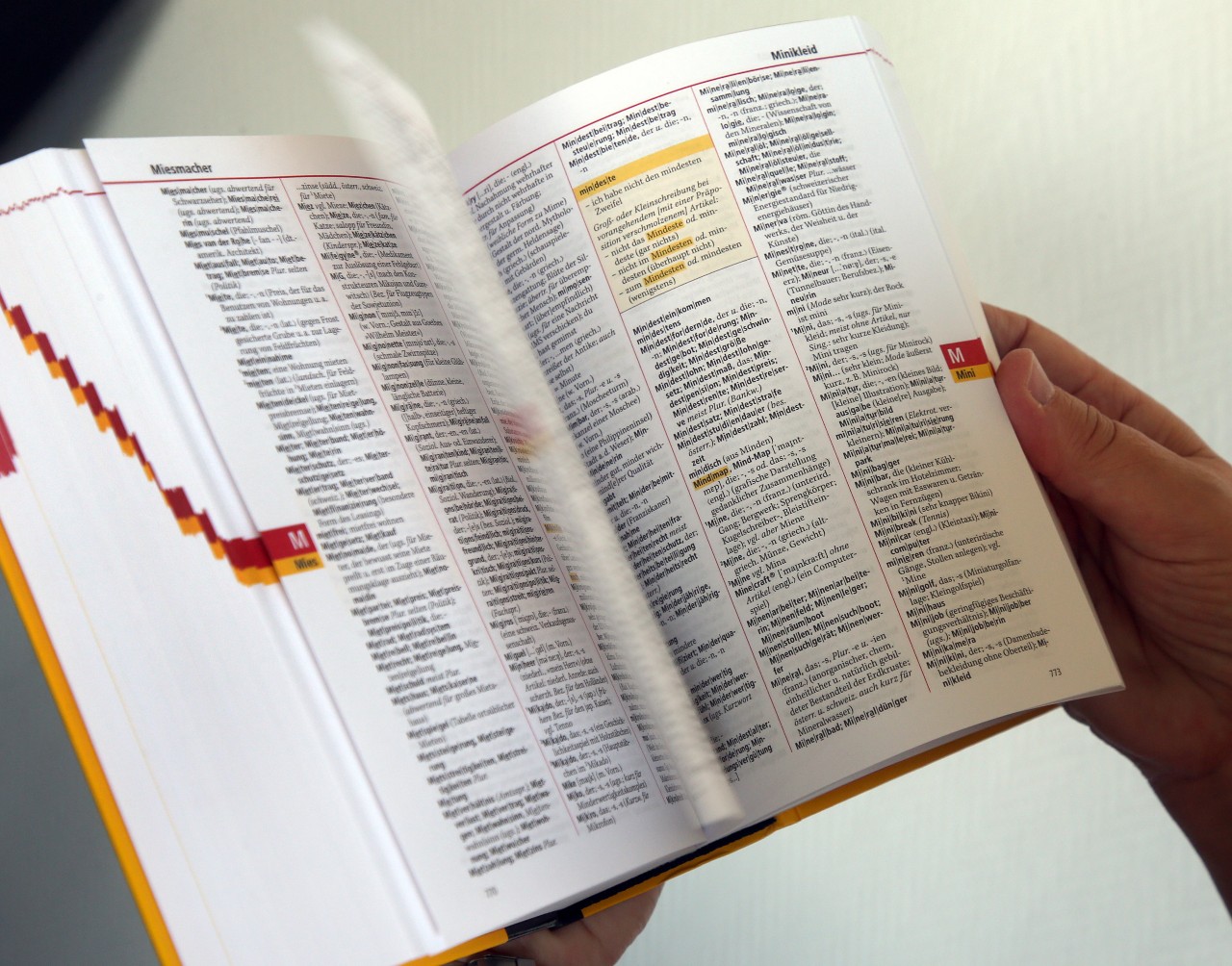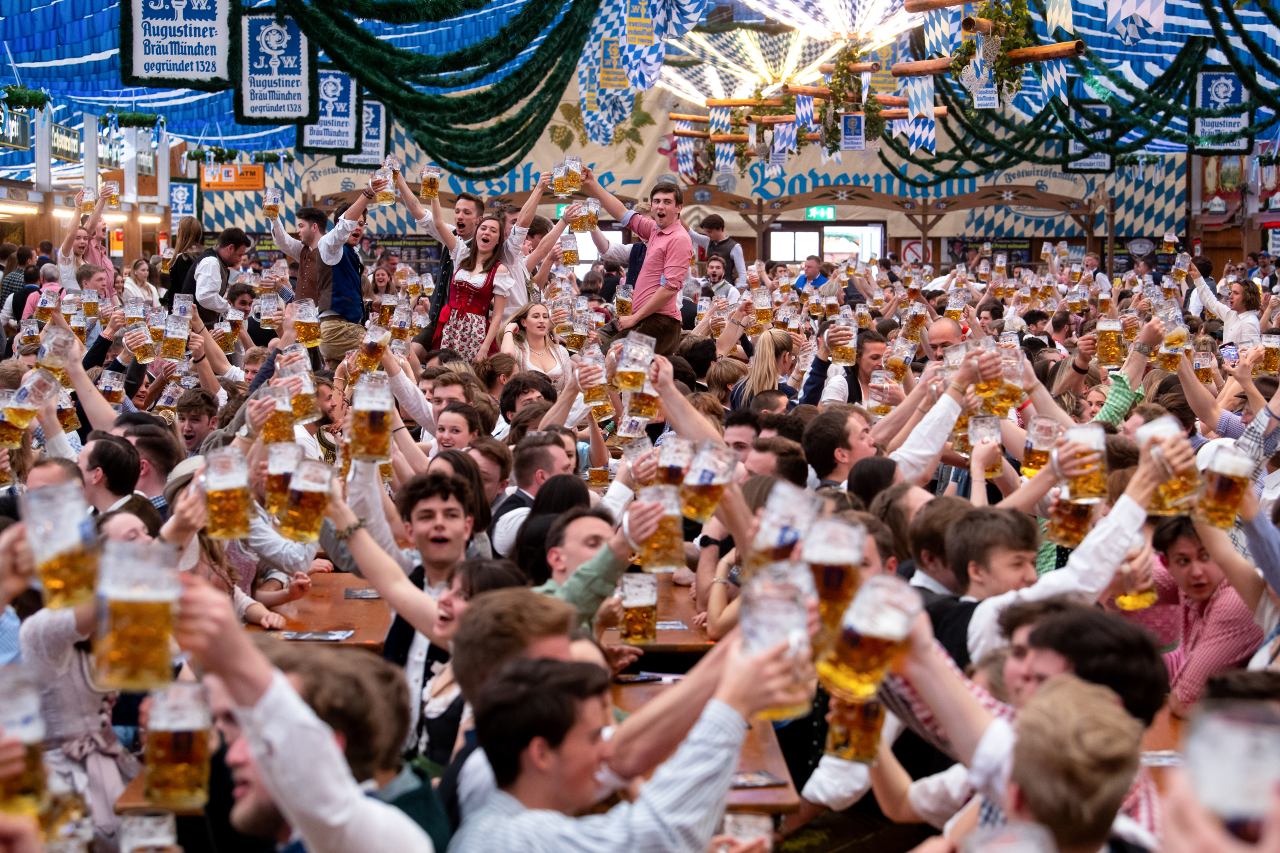Learning German can sometimes feel like trying to find your way through a maze of grammar rules and vocab that are simply designed to be difficult.
Gazing with awe at native speakers, you may wonder how they simply find the right gender of every word with ease, and never seem to forget to put the Verb am Ende (verb at the end).
But whenever you're feeling disheartened, it's well worth remembering that German native speakers can sometimes get tripped up by their own language, too.
What's more, even the most passionate advocates of speaking "correct" German are known to make blunders.
As a prime example, the far-right AfD are famous for churning out campaign materials littered with grammar, spelling and punctuation errors - all while lamenting the decline of German language and culture at the hands of the liberal elites.
Antwort:
— Ella 🇸🇪 (@Ella_von_T) October 19, 2024
Rechtschreibung, Grammatik und Interpunktion.#LerntDeutsch pic.twitter.com/NIx5A7Puhg
In the above picture, the author incorrectly substitutes the dative (dem) for the correct accusative case (den), forgets a colon, mistakenly capitalises an adjective (woke), misspells the conjunctive "dass" and even appears to make up a whole word: dagen, which presumably stands in for the word "dagegen".
So when this AfD member poses the question, "What's wrong with this way of living?", there's a pretty easy retort: spelling, grammar and punctuation.
READ ALSO: The seven stages of learning German every foreigner goes through
Of course, while these are quite obvious and basic errors, there are some debates about whether finger-wagging is always appropriate in situations like these.
Some mistakes become so common in a language that they simply become part of modern usage, which is the sign of a living tongue that develops over time.
That said, if you want to feel just a little bit smug, here are some language slip-ups to look out for among your German friends.
Zumindestens
This error can be a little tricky to spot - and you may have even fallen into this trap yourself on occasion - but "zumindestens" is absolutely not a German word.
What speakers who do this may be thinking of instead are the words "mindestens" and "zumindest" - both of which mean "at least" in German.

Given their similarities, it's no wonder that you often find Germans conflating the two words to create a whole new one, a little like George Bush's famous claim: "They misunderestimated me."
If you want to steer clear of this common slip-up, simply pick one of the two words you're comfortable using and stick with it. That way you'll avoid a world of confusion and can simply raise a knowing eyebrow when you hear a German make this mistake in future.
Wegen + Dative
This one is a little bit cheeky since the rules have technically changed over time, but if you want to put your grammar-police hat on, it's also one to look out for.
Often, Germans will exchange the genitive case for the dative when using the preposition "wegen", which means "because of".
For example, instead of saying, "wegen des Wetters" (the genitive construction), the vast majority of German speakers these days will opt for, "wegen dem Wetter", picking the dative construction.
While the genitive used to be the correct case, the grammatical switch has become so prevalent that Duden, the main authority in the German language, now allows for both.
With this in mind, it's no wonder that Germans often say, "Der Dativ ist dem Genitiv sein Tot" (the dative is the death of the genitive).
READ ALSO: 5 of the most cringeworthy mistakes I've made in German
Since it isn't really a mistake anymore, you shouldn't worry too much about avoiding this one. But if you want to feel really clever, you can use the genitive in formal situations, while sticking to dative when hanging out with your buddies.
Plurals
Germans have their own rules for how to pluralise words, usually by sticking an -n/-en or -r/-er at the end of a word, or adding an -e and an umlaut.
This is generally straightforward, but it can get confusing when foreign words are imported into the German language, along with their own grammar rules.
Often, Germans will reach for the German rules with these words, forgetting that they actually come from other languages like English. As a good example, a German might pluralise "parks" as "Pärke", forgetting that the plural is actually the same as the English "parks".
To avoid this one, keep an eye out for words that are imported from other languages, and remember that these are often treated differently.
Mixing up idioms and homophones
German is full of weird and wonderful sayings, so it can be expected that some of them can get a bit garbled in everyday speech. For example, you might hear a German declare, "Wer zuerst kommt, fängt den Wurm" (whoever comes first, catches the worm), mixing up the phrases "first come, first served" and "the early bird catches the worm".
Sometimes these mix-ups can be unintentionally hilarious. German speakers have been known to confuse the proverb, "Alles in Maße" (everything in moderation) with the similar-sounding, "Alles in Massen" (everything in bulk), which captures a rather different sentiment.

Or, if their mind is elsewhere in the Bundestag, a politician may start complaining about a hole in the "Bidet", instead of "Budget".
In English, slip-ups like these are known as malapropisms, named after the constantly befuddled character Mrs. Malaprop in Richard Sheridan's play The Rivals.
You're never going to avoid these entirely, but at least you can enjoy a good laugh with your friends whenever they happen.
Separable verbs
Have you ever started a long and rambling sentence and forgotten where you're going with it? If so, be thankful you're not German, because doing this in German comes with a whole host of grammatical pitfalls.
The most common of these happens with separable verbs, where the prefix is often separated from the main root of the verb. For example, you might say: "Ich schicke den Brief ab", meaning "I'm sending the letter off", breaking "abschicken" into two separate parts.
Problems start arising when Germans embark on a winding tale full of subclauses and asides - and ultimately forget the word they started with, along with its appropriate ending.
To avoid this, remember you are not Thomas Mann, and nobody needs to speak in sentences of 100 words of more. Stick to simple constructions, at least at the start, and you can build up to more complex and verbose sentence with time.
READ ALSO: 10 German words that strike fear into the hearts of language learners
Wie vs Als
The difference between 'wie' and 'als' is actually very easy to remember, but you'd be surprised how confusing they can be for Germans.
While both are use for comparisons, 'als' is used to denote difference, while 'wie' is used to denote similarities. As an example, you could say: "Mein Brüder ist zwei Jahre älter als ich" (my brother is two years older than me), but if your brother is your twin, you would say: "Mein Brüder ist genauso alt wie ich" (my brother is the same age as me).

If you feel like you've got the hang of this, congratulations: you're already doing better than a pretty large segment of native speakers.
To keep yourself on track, simply remember that "wie" means "like", which will help you keep in mind that this is the word you use to describe likenesses rather than differences.
Das Gleiche vs Dasselbe
This one causes endless confusion among German learners, but if it's any consolation, it's often confusing for Germans as well.
While "das Gleiche" and "dasselbe" can both be translated as "the same", there are some important nuances into how they are used. While "das Gleiche" tends to refer to a thing that has the same properties - like having the same laptop as your friend - "dasselbe" refers to something being literally the same thing.
As an example, if you want to order a döner kebab with all the same toppings as the person in front of you, the döner you would order would be "das Gleiche". If you ordered "dasselbe", you would presumably be hoping to steal the döner kebab out of that customer's hands before they had a chance to bite into it.
Though it's not always easy to get this right, it can be helpful to think of the world "selbe" as "the self". As a unique individual, there's nobody quite like you are, so "dasselbe" would have to refer to the one and true original, rather than a poor imitation.

Comments